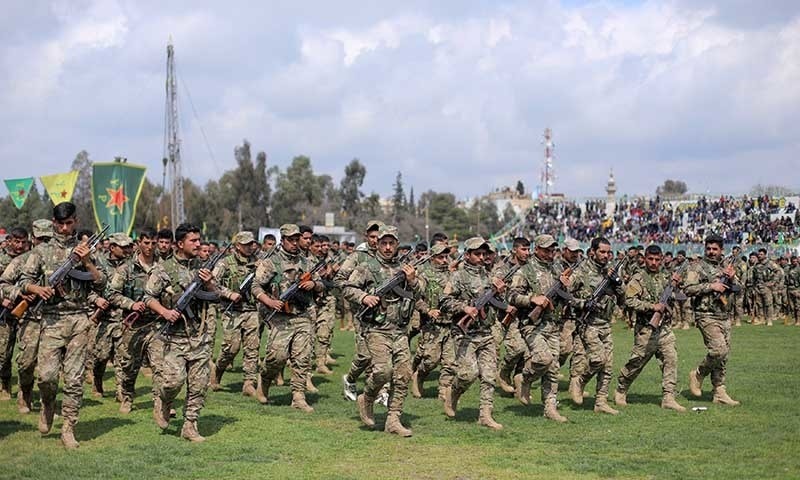The announcement came after three days of tense negotiations with US officials hoping to forestall a Turkish attack on the Kurdish YPG group, which controls large swathes of northern Syria.
Turkey sees the YPG as a terrorist offshoot of the Kurdish PKK, which has fought a bloody insurgency inside its territory for the past 35 years.
The defence ministry said in a statement that Ankara had agreed with US officials to “implement without delay the first measures aimed at eliminating Turkey’s concerns.
“In that framework, to quickly create in Turkey a joint operation centre to coordinate and manage the implementation of the safe zone with the US.” Ankara has stepped up threats in recent days to launch an offensive against the YPG.
That put the United States in a difficult position as a Nato ally of Turkey but also a supporter of the YPG as its main frontline partner against the so-called Islamic State group.
All sides agree that a buffer zone is needed to keep the YPG away from Turkey’s borders, but they have differed on how large it should be, or who should control it.
The defence ministry said Turkey’s ultimate aim was to create a “peace corridor” that can “ensure that our Syrian brothers will be able to return to their country”.
Turkey has the highest number of Syrian refugees in the world at more than 3.6 million, and has faced increasing pressure domestically to speed up repatriations to peaceful parts of the country.
The talks come at a delicate moment between Turkey and the US, who have grown increasingly estranged over a number of issues, including American support for the Kurds and Turkey’s decision to buy a Russian S-400 missile defence system.
Turkish President Recep Tayyip Erdogan warned in recent days that patience was running out with the Americans to find a solution in northern Syria.
“Turkey has the right to eliminate all threats against its national security,” he said in a televised speech on Tuesday.
US Defence Secretary Mark Esper countered that any unilateral action by Turkey would be “unacceptable”.
But by the third day of talks, his Turkish counterpart, Defence Minister Hulusi Akar, said there were positive signs.
“We witnessed with satisfaction that our partners grew closer to our position. We would prefer to act together with our American ally. If that isn’t possible we have said multiple times that we will do what is necessary,” he told the state-run Anadolu news agency.
Turkish media outlets have often shown images in recent weeks of military convoys heading for the border area, carrying equipment and fighting units.
Turkey has twice carried out unilateral offensives into northern Syria against the IS and YPG, in 2016 and 2018 respectively.
